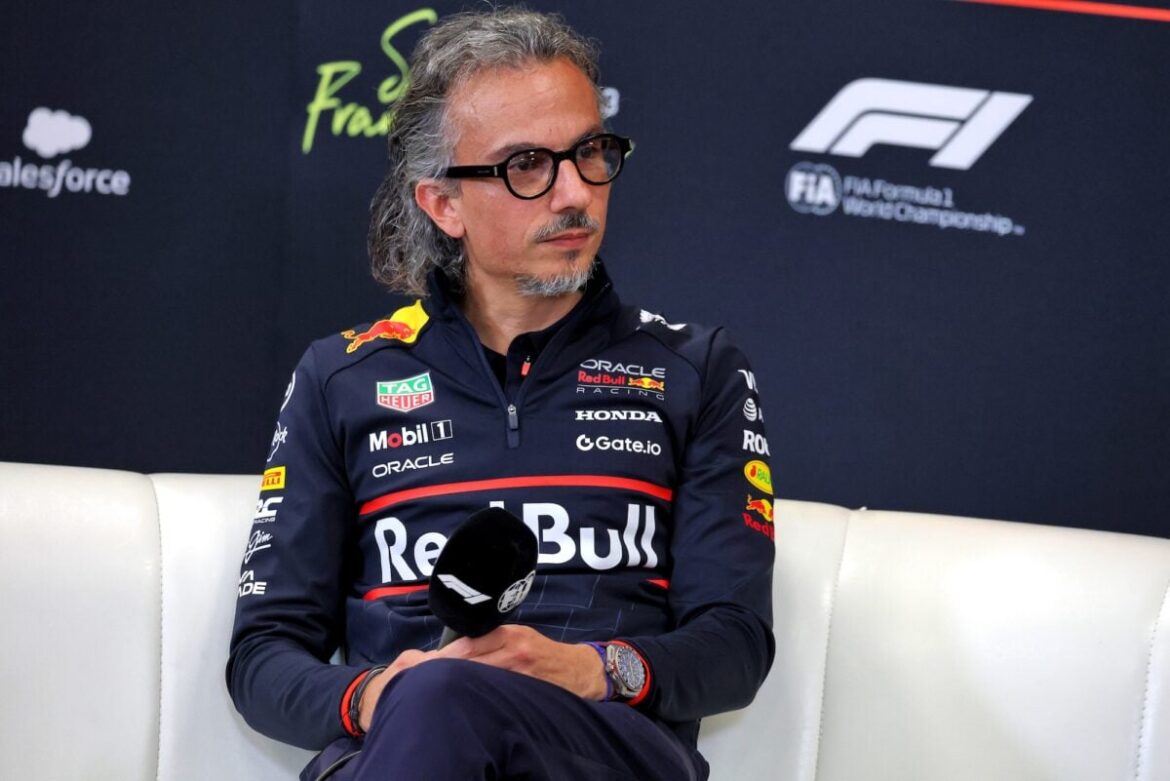Christian Horner and Laurent Mekies: The Impact of Rapid Team Changes in Formula 1
The recent swift transition of Laurent Mekies from the role of team principal at a satellite team to the lead position at Red Bull Racing has ignited renewed scrutiny within the Formula 1 community. This change has particularly drawn sharp comments from rival teams like McLaren, who have previously expressed concerns about the dynamics and relationships among teams within the sport. Mekies’ quick leap to Red Bull, occurring just a week after leaving his previous post, raises questions about the integrity of team independence in Formula 1, particularly in light of the common practice known as "gardening leave."
Understanding Gardening Leave in Formula 1
Gardening leave is a widely accepted practice in various industries, including Formula 1. It typically involves an employee serving a notice period without actively working for the company, during which they are prohibited from joining a competing organization. This process is designed to prevent the transfer of sensitive information and trade secrets between rival teams. In Mekies’ case, he did not adhere to this standard protocol, which has led to significant concerns about the potential flow of confidential knowledge from the satellite team to Red Bull Racing.
The implications of such rapid transitions are far-reaching. Andrea Stella, the team principal at McLaren, has voiced the necessity for a thorough discussion among the teams regarding the independence and integrity of team operations. He emphasized the importance of addressing these issues with the seriousness they warrant, rather than approaching them superficially. "This is an interesting and complex topic. We need to be cautious not to tackle it too simplistically," Stella remarked during an interview with GPblog.
The Competitive Landscape of Formula 1
The competitive nature of Formula 1 makes it crucial for teams to maintain their proprietary knowledge and strategies. The concern is that Mekies, by moving so quickly, might carry insights from the Racing Bulls to Red Bull, potentially giving the latter an unfair competitive edge. Stella expressed confidence in the existing regulations that govern these transitions, yet he acknowledged the need for future discussions to ensure that the sport remains fair and balanced.
Stella reiterated that McLaren has previously raised concerns about the independence of teams, indicating that this ongoing dialogue is essential for maintaining the integrity of the sport. "At present, I believe the existing regulations mitigate risks, but this is definitely a topic for future discussions, as we seek a more evolved approach to team independence," he stated.
Recent Regulatory Changes by the FIA
In response to the growing concerns about team independence and the rapid movement of key personnel, the FIA (Fédération Internationale de l’Automobile) has recently implemented measures aimed at curbing such practices. A new regulation, which will come into effect under Article F of the 2026 regulations, stipulates that employees in strategic roles will be required to observe a minimum gardening leave before transitioning to a rival team. This rule aims to safeguard proprietary information and ensure a level playing field among teams.
The introduction of this regulation highlights the FIA’s acknowledgment of the complexities involved in team personnel changes and the potential ramifications on competitive fairness. This proactive step is designed to foster a more equitable environment in which teams can compete without the fear of losing sensitive information to rivals.
The Role of Team Principals in F1
Team principals play a pivotal role in the success of their respective teams. They are responsible for making critical decisions that affect performance, strategy, and overall team dynamics. The recent shift of Mekies to Red Bull raises questions about how swiftly changing personnel can impact team performance and competitive strategy.
Team principals must navigate a landscape fraught with challenges, including maintaining team morale, fostering a culture of innovation, and ensuring that their teams stay ahead of the competition. The rapid movement of key figures within this ecosystem can disrupt established workflows and strategies, leading to potential instability.
The Future of Team Independence in Formula 1
As the discussion about team independence continues to evolve, it is essential for stakeholders to engage in constructive dialogue. The concerns raised by teams like McLaren underscore the need for ongoing scrutiny of the regulations governing personnel transitions within the sport.
The FIA’s recent regulatory changes represent a step in the right direction, but further discussions are warranted to refine these regulations and ensure that they adequately address the complexities of team operations. It is crucial for teams to feel confident that their proprietary information is protected and that they can compete fairly without the threat of information leaks.
Conclusion
The rapid transition of Laurent Mekies from a satellite team to the helm of Red Bull Racing has sparked important conversations about team independence and the implications of personnel changes in Formula 1. As the sport continues to evolve, it is vital for teams, governing bodies, and stakeholders to work collaboratively to create a fair and competitive environment. By addressing these issues thoughtfully, the future of Formula 1 can remain bright and competitive, ensuring that all teams have a fair shot at success.
